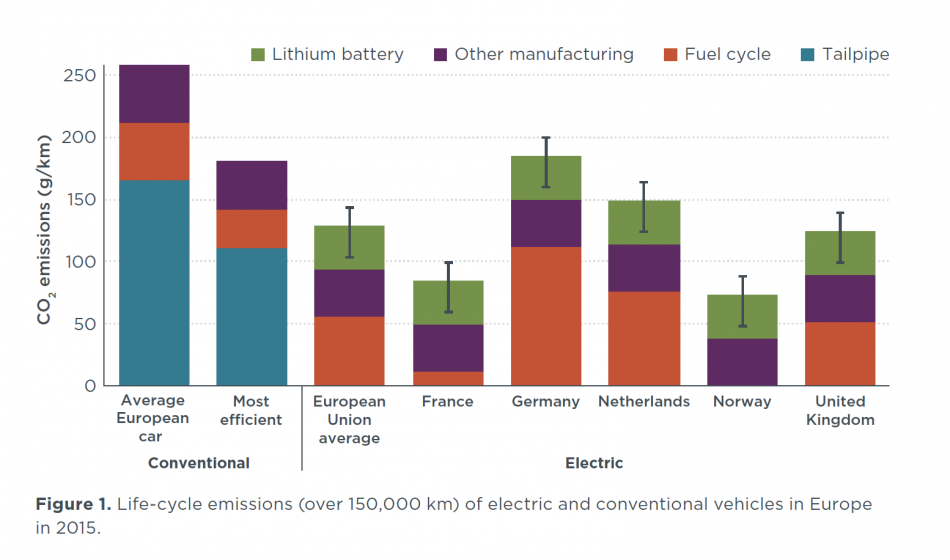Electric cars much cleaner than internal combustion engine cars over lifetime - ICCT
A typical electric car today produces just half of the greenhouse gas emissions of an average European passenger car over its life cycle of manufacturing, fuel cycle and use, writes the International Council on Clean Transportation (ICCT) in a review comparing several studies. There was a wide range of values found in these studies, which indicates the degree of uncertainty in assessing life cycle emissions and the variety of methods and materials used in manufacturing batteries, writes the ICCT. The relative benefit for e-cars varies greatly in different countries, depending on local electricity production. An electric vehicle’s higher CO₂ emissions during the manufacturing stage are paid off after only two years compared to driving an average conventional vehicle. “This emissions recovery period is no more than three years even in countries with relatively higher-carbon electricity such as in Germany,” writes the ICCT. In markets with very low-carbon electricity, such as Norway or France, electric vehicles produce less than a third of the life cycle emissions of an average combustion-engine vehicle.
Find the briefing in English here.
For background on the car industry, read the CLEW dossier The Energiewende and German carmakers and this CLEW interview with the ICCT’s Peter Mock.

